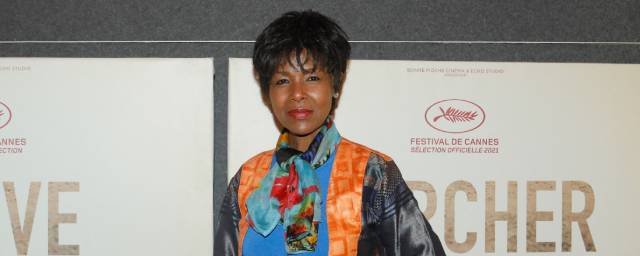On November 19, the Academy of Oscars hailed the career of Euzhan Palcy. A look back at the exceptional career of this Martinican filmmaker, to whom we owe the film “Rue Cases-Nègres”.
A true pioneer in the representation of black communities on screen, director Euzhan Palcy unfortunately remains unknown in mainland France. An injustice repaired by an Oscar of honor which was given to him on Saturday November 19, 2022 from the hands of actress Viola Davis. A reward that consecrates the career of this Martinican director, who underlined in a vibrant speech her fatigue “to hear these words: ‘Blacks are not bankable’. ‘Women are not bankable’. ‘Black and woman are not bankable’.”
Born in 1958 in Gros-Morne in Martinique, Euzhan Palcy has had a passion for cinema since childhood. Reading novels at age 14 Rue Cases-Nègres of Joseph Zobel is decisive in his career. This autobiographical account of the daily life of a black child and his grandmother in the sugar cane plantations of Martinique in the 1930s confronts her with a familiar environment that she dreams of bringing to the screen one day. She thus hopes to make her voice and those of her compatriots heard at a time when blacks are still confined to degrading roles and racist representations.
Determined, at the age of 17 she directed the TV movie La Messagère for French television in Martinique then flew to Paris where, encouraged by her father, she studied literature and theater at the Sorbonne and trained as a director of the photography at the Ecole Nationale Supérieure Louis-Lumière.
After having cut her teeth as an assistant on several films, in 1981 she was the first filmmaker from the West Indies to receive an advance on receipts from the CNC. The following year, she realized her teenage dream and made her first feature film, Rue Cases-Nègres, adapted from the book by Joseph Zobel. The film is a success and collects around the world around twenty awards. Among these, the César for best first work, a first for a female filmmaker, who is also black.
Spotted by Hollywood, she crossed the Atlantic and was invited in 1985 by Robert Redford to develop her new project at the writing and directing workshops at Sundance, his festival devoted to American independent cinema. She is once again adapting a novel, the best-selling anti-apartheid A white and dry season by André Brink, in which a white teacher gradually becomes aware of the violence of the segregationist regime when the black gardener at the school where he works is arrested for trying to investigate the death of his son.
For this film released in 1989 – at a time when Nelson Mandela was still a prisoner of South African jails – she led a prestigious cast made up of Zakes Mokae, Donald Sutherland, Susan Sarandon and Marlon Brando, making her the only woman to having directed Brando (nominated for the Oscar for best supporting role) as well as the first black filmmaker produced by a major (MGM).
Christophe Clovis / Bestimage
Noting that the representation of blacks on screen has still not changed, she decides to go back to her roots and celebrate the West Indies with Siméon (1992), a musical tale carried by the music of the group Kassav’. There followed a documentary trilogy entitled Aimé Césaire, a voice for history (1995), devoted to the man she considers to be her spiritual father.
Her career continued on television, with the Disney TV movie The Fight of Ruby Bridges, the true story of a black schoolgirl who attended an establishment reserved for whites in 1960; the documentary TV film Parcours de dissidents on the little-known history of West Indian resistance fighters during the Second World War; or the mini-series The Brides of Isle Bourbon, which looks back on another forgotten event: that of the forced marriage of three women to ex-French patriots in the 17th century on the island of Reunion.
In 2021 at the Césars, Jean-Pascal Zadi quotes her in his speech when he obtains the prize for Best Male Hope, thanking those who have “opened the breach”. The one who has been absent from the sets for fifteen years has made known her desire to return to the cinema, during her speech before the Academy of Oscars on November 19: “Tonight I was given credit for what I’ve always said: the impossible is possible. And you spark the joy in me to scream again. […] It encourages me to raise my voice again to bring you films of all genres that I’ve always wanted to make my way without my voice being censored or silenced.”
Unknown to the general public, this French director received an Oscar!

